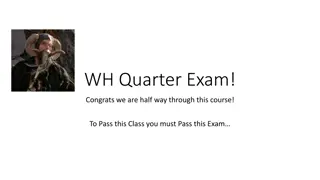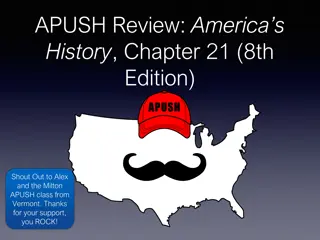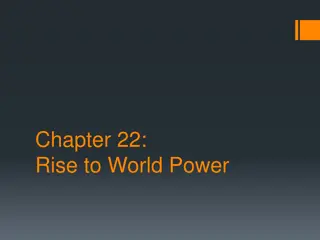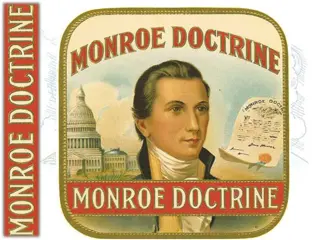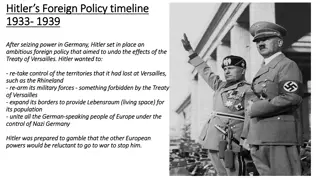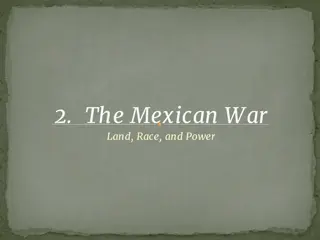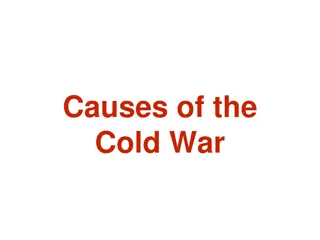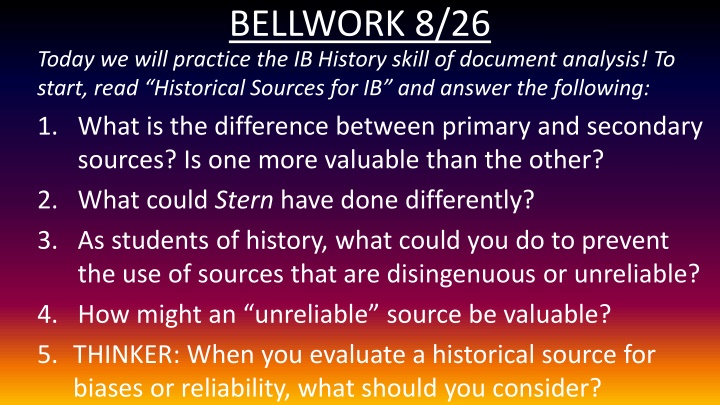
Analyzing Historical Sources for IB: Primary vs. Secondary, Unreliable Sources, and Bias Evaluation
Practice skills in document analysis by understanding the differences between primary and secondary sources, identifying Stern's potential improvements, learning how to avoid unreliable sources, and evaluating biases in historical materials. Explore justifications for expansionism and delve into Rudyard Kipling's poem "The White Man's Burden" to examine its impact on imperialism. Discover the OPCVL strategy for source evaluation in IB history.
Download Presentation

Please find below an Image/Link to download the presentation.
The content on the website is provided AS IS for your information and personal use only. It may not be sold, licensed, or shared on other websites without obtaining consent from the author. If you encounter any issues during the download, it is possible that the publisher has removed the file from their server.
You are allowed to download the files provided on this website for personal or commercial use, subject to the condition that they are used lawfully. All files are the property of their respective owners.
The content on the website is provided AS IS for your information and personal use only. It may not be sold, licensed, or shared on other websites without obtaining consent from the author.
E N D
Presentation Transcript
BELLWORK 8/26 Today we will practice the IB History skill of document analysis! To start, read Historical Sources for IB and answer the following: 1. What is the difference between primary and secondary sources? Is one more valuable than the other? 2. What could Stern have done differently? 3. As students of history, what could you do to prevent the use of sources that are disingenuous or unreliable? 4. How might an unreliable source be valuable? 5. THINKER: When you evaluate a historical source for biases or reliability, what should you consider?
Review: Justifications for Expansionism What is imperialism? In five groups, you will review over each category for justification of expansion. Ideological (Monroe Doctrine & Manifest Destiny) Moral Duty (include racial/religious justification) Practical Necessity (include the role of military) Economic (list at least three economic justifications) Political (include establishment of sphere of influence)
August 27th: Intro to OPCVL As you learned yesterday, OPCVL is a strategy used to evaluate sources in IB history. Spend 5 minutes reviewing the OPCVL handout. This is used in history class, the IA, EA1 & history EEs You may annotate/take notes to deepen understanding. Be ready to discuss the main idea of each concept: Origin Purpose Content Value Limitation
Intro to OPCVL How to evaluate sources in IB History A practice activity with expansionist literature
Justifications for Expansion: The White Mans Burden One important author from the time period was Rudyard Kipling. His famous poem, The White Man s Burden (1899), changed the political/social climate of the time. During this next part of class, read and annotate the poem. Be ready to discuss these questions, as well as, OPCVL! 1. According to Kipling, what was the white man s burden? 2. Summarize the message/meaning of Kipling s poem. 3. How did Kipling s poem justify imperialism at the time?
With reference to origin, purpose and content, analyze the values and limitations of the source.
Bellwork 8/29 - The White Mans Burden 1. According to Kipling, what was the white man s burden? 2. Summarize the primary message/meaning of Kipling s poem. Be ready to reference specific lines/stanzas in the poem to back up your answer! 3. THINKER: How did Kipling s poem justify imperialism at the time?
OPCVL: The White Mans Burden Now it s time to practice OPCVL! With regards to origin, purpose, and content, analyze the values and limitations of the source.
OPCVL Station Activity In order to practice OPCVL and understand reasons for US expansion, you will participate in a station activity. The class is divided into 5 groups and each group will start at a station Each station has a folder with a primary source relating to justifications/theories of expansion Read the background of the author first, then analyze the source. After your group has read the source, discuss the OPCVL aspects and complete the pink worksheet. Work together! Stay on task and work effectively use this activity as an opportunity to practice OPCVL and understand U.S. motives (eventually these theories will become the foundation for U.S. imperial actions)
Period 7 Groups 1. Evan, Jojo, Angeleana, Trinity 2. Dylan K, Sabrina, Terrance, Alex, Hannah 3. Nawel, Wes, Jesus, Dylan T, Bianca 4. Aaron, Emily, Paige, Alyssa, Azlynn
U.S. Expansionism The class will be divided into five groups. Each group will be responsible for review over one famous politician/historian/philosopher and their specific viewpoint. Herbert Spencer Francis Galton Goldwin Smith Josiah Strong Alfred Thayer Mahan
Requirements for poster review.. Your poster should be neat, organized, summarized, visually appealing and include: Meaning/message of the source How they justify U.S. expansionism Why/how this source is valuable Why/how this source is limited Pose a discussion question to the class about your topic/person/reading/argument
Requirements for group review.. Be ready to explain to the class: Meaning/message of the source How they justify U.S. expansionism Why/how this source is valuable Why/how this source is limited Pose a discussion question to the class about your topic/person/reading/argument
File:School Begins (Puck Magazine 1-25-1899, cropped).jpg Puck Magazine; 1901 School Begins. Uncle Sam (to his new class in Civilization). Now, children, you've got to learn these lessons whether you want to or not! But just take a look at the class ahead of you, and remember that, in a little while, you will feel as glad to be here as they are!
Discussion 1. What is eugenics? 2. What is feeble-mindedness? How did this relate to the eugenics movement in Canada? 3. What rationale did the Canadian government give for the support of eugenics? 4. How did Nazi Germany impact eugenics in Canada? 5. Compare/Contrast eugenics policies in Alberta & British Columbia. 6. THINKER: Throughout the eugenics movement, the Canadian government targeted the poor. Is this a genetic trait that can be limited? Why did the Canadian government do this?
1. Explain Herbert Spencers justifications for expansionism. 2. What is eugenics? Which philosopher advocated this? 3. Who was Goldwin Smith? What did he propose? Why? 4. Describe the similarities in viewpoints between John Fiske and Josiah Strong. 5. Explain the political justifications for expansion. 6. THINKER: As you know the Monroe Doctrine sought to decrease European influence in the Americas. In your opinion, what interests might France, Great Britain, and Russia have in Latin America? How realistic were the fears of the United States?
Review: Justifications for Expansionism 1. What is imperialism? 2. How were religion and race used to justify U.S. expansionism? 3. Explain the realist ( practical ) approach to U.S. expansionism. 4. List three economic justifications for US expansionism.
Past BELLWORK In one sentence, summarize the justifications for expansion with regards to: 1. Moral Duty 2. Practical Necessity 3. Economic Aspects 4. Political Influence


